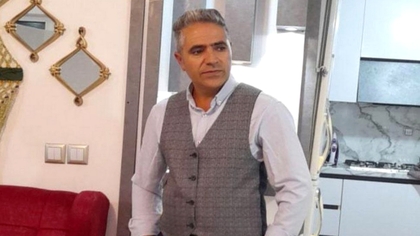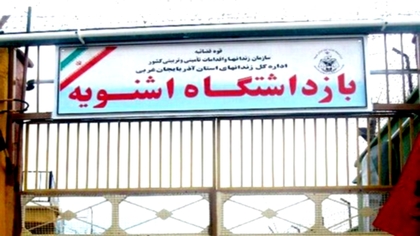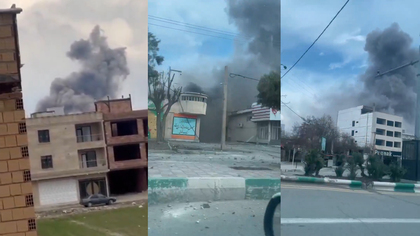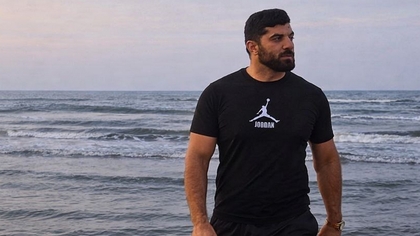Execution of Edris Ali, Azad Shojaei, and Rasoul Ahmad Rasoul: Rushed, Secretive, Unjust – No Notification to Lawyers or Families, No Return of Bodies
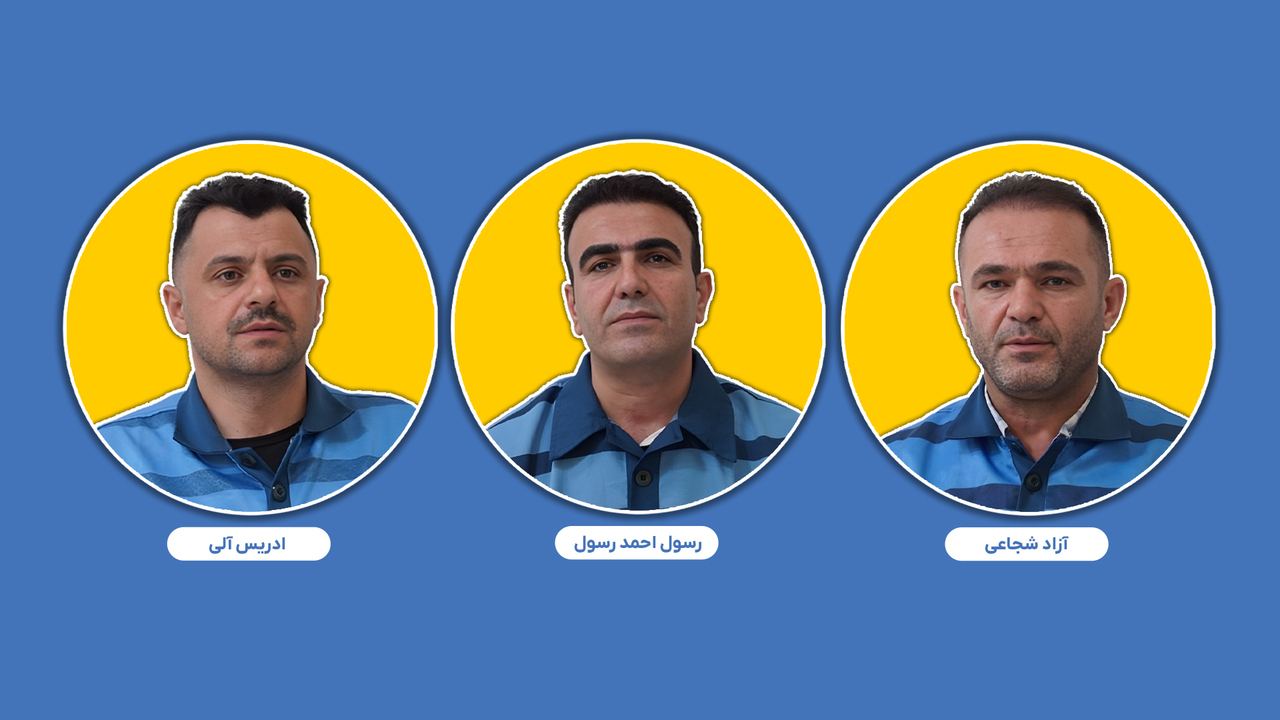
Four days after the secret and rushed execution of three Kurdish political prisoners—Azad Shojaei, Edris Ali, and Rasoul Ahmad Rasoul—at Urmia Central Prison, their bodies have not been returned to their families.
The three men were executed at dawn on Wednesday, June 24, 2025, without prior notification to their legal representatives and denied the right to a final visit with their families. According to informed sources who spoke to Kurdpa, on the night before the execution (June 23), prison staff removed the prisoners from their ward at 9:00 PM, falsely claiming that they were being transferred to facilities closer to their hometowns, and assuring them that no sentence would be carried out.
That same morning, Azad Shojaei had a phone conversation with his family, showing no awareness of the impending execution, nor any indication that it would take place.
As of this writing, none of the bodies have been returned, and families have been barred from entering Urmia Prison. They have also been prohibited from publishing funeral notices—a customary practice in Kurdish communities—and denied the right to hold public mourning ceremonies.
In this exclusive investigation, Kurdpa reviews the entire timeline of the case, from arbitrary arrest and unfair trial to the secret execution, in order to illustrate how the Islamic Republic—in response to the assassination of Mohsen Fakhrizadeh—resorted to opaque and extrajudicial proceedings in violation of fair trial guarantees.
From state propaganda campaigns lacking legal accountability, to ambiguous indictments and the final implementation of the death penalty, the case exemplifies political retaliation under the guise of national security enforcement. A review of the official verdict indicates that the three men were convicted not based on material evidence or due process, but solely on intelligence agency reports and confessions extracted under duress.
The denial of access to legal counsel during interrogation, the execution without family notification, and the withholding of the bodies all underscore how the Iranian judiciary has weaponized the death penalty as a tool for security-driven political repression.
1. Arbitrary Arrest, Unfair Trial Without Access to Legal Counsel, Rushed Execution, and a “Legally Framed” Death Sentence Under Severe Due Process Violations
On Wednesday, June 26, 2025, the Mizan News Agency reported at 5:36 AM that “as part of the judiciary’s decisive action against agents of Israel,” Edris Ali (son of Saleh), Azad Shojaei (son of Abdolrahman), and Rasoul Ahmad Rasoul were executed in Urmia Central Prison for the charges of “enmity against God (moharebeh)” and “corruption on Earth (efsad-e fel-arz)” through alleged cooperation with Israel and smuggling equipment used in the assassination of Iranian nuclear scientist Mohsen Fakhrizadeh.
According to the report, after the Revolutionary Court in Urmia issued the death sentences, the case was referred to the Supreme Court, which, without issuing any public ruling or written verdict to the defense, confirmed the lower court's judgment. The phrase “confirmed and enforced” in Iranian legal context implies that no further appeal, retrial, pardon, or stay of execution is legally permitted—authorizing immediate execution.
However, from a human rights and due process standpoint, this process violates fundamental principles of fair trial. The absence of a written ruling, failure to notify the lawyers, and deprivation of the defendants’ right to petition for retrial or clemency render the ruling legally void under international law, despite its formal legality in the domestic judicial structure.
Background and Detention
According to Kurdpa’s findings, the three Kurdish men were arrested in July 2023 in Sardasht by security forces and transferred to the Ministry of Intelligence detention facility in Urmia. They were held there for over eight months, during which they endured prolonged solitary detention and physical and psychological torture aimed at extracting forced confessions. Only after more than three months of detention were they permitted to contact their families.
On May 30, 2024, Iran Human Rights quoted a source stating that Edris Ali confessed under torture to working for Israel, despite there being no credible evidence. The source said:
“They told him, ‘You smuggled alcohol, so we’ll let you go if you just say what we tell you.’ He did. On camera, he repeated everything they fed him—including that the cargo he smuggled was meant for Israel. That’s the only reason they sentenced him to death.”
The same source noted that Edris Ali was held in the political ward, while Shojaei and Rasoul were detained with non-political prisoners. The trial was held on September 22, 2024, in Branch 2 of the Revolutionary Court in Urmia, and the verdicts were issued on October 25, 2024. During the entire pretrial investigation phase, none of the three had access to legal counsel. Only after the cases were referred to court were they granted limited access to defense attorneys.
Violations of Legal Rights
According to Kurdpa, the three men rejected all charges during initial interrogations but were tortured into making forced confessions. A legal source confirmed that the entire indictment, scenario construction, and confessions were obtained without legal representation and under pressure during the investigation phase.
- Edris Ali and Azad Shojaei were assigned private lawyers; Rasoul Ahmad Rasoul had a court-appointed lawyer.
- None of the lawyers were permitted to intervene before the cases reached court.
- Even then, their access remained highly restricted, and they were denied the right to petition for retrial after the Supreme Court ruling.
Legal Commentary by Osman Mozayan (Defense Counsel)
Following the executions, Osman Mozayan, attorney for two of the men, told Rudaw:
“The executions were carried out without informing the lawyers or families, and they were denied a final visit. The accused had no legal representation during interrogations. We only attended one brief court session. Our Supreme Court appeal was submitted six or seven months before the execution, but we never received any ruling—only heard of the Supreme Court’s confirmation just days before they were hanged. All legal remedies were silently eliminated.”
Mozayan added that even the core accusation of “planning terrorist operations” was vague and unsupported. No document clarified how or by whom any such plot was delivered to Tehran. The absence of concrete evidence stripped the defense of any meaningful opportunity to contest the charges.
Domestic and International Legal Violations
According to Article 190 of Iran’s Criminal Procedure Code, defendants must be granted access to legal counsel from the start of investigations. Article 35 of the Constitution guarantees the right to legal representation in all courts and mandates the state to appoint counsel for those who cannot afford one.
The complete denial of legal representation for Edris Ali, Azad Shojaei, and Rasoul Ahmad Rasoul during the investigative phase—where torture, interrogation, and indictment construction occurred—violates not only domestic Iranian law but also Article 14(3)(d) of the International Covenant on Civil and Political Rights (ICCPR), which affirms the right to access legal counsel at all stages of criminal proceedings.
Therefore, the completion of the case without legal representation and subsequent imposition of death sentences constitute grave violations of both Iran’s domestic legal obligations and its international human rights commitments.
2. What the Verdict Says: Death Sentences Based on Coerced Confessions Extracted During Interrogation
The official verdict sentencing Edris Ali, Azad Shojaei, and Rasoul Ahmad Rasoul to death was issued by Branch 2 of the Revolutionary Court in Urmia and, following the execution on June 24, 2025, was published for the first time by the local outlet Birkô. The document clearly shows that the primary basis for the death sentences was confessions obtained during interrogation under the supervision of the Ministry of Intelligence, in the absence of any legal counsel—a stage which, under Iranian law, is only meant for gathering evidence and drafting an indictment.
In the absence of independent evidence, a robust defense, or legal representation during questioning, the court relied entirely on intelligence agency reports and interrogation transcripts, and used them to convict all three men of “enmity against God (moharebeh)” and “corruption on Earth (efsad-e fel-arz).” This pattern exemplifies not only a gross violation of the presumption of innocence and the right to a defense, but also a textbook case of a politically motivated show trial.
Key Findings from the Verdict Document:
- On October 25, 2024, Judge Ghorban Shahini, presiding, and Esmail Bazarkari, acting as associate judge, sentenced Azad Shojaei (son of Abdolrahman), Edris Ali (son of Saleh), and Rasoul Ahmad Rasoul to death for “espionage and collaboration with Israel.”
- The indictment, issued by the Urmia Public and Revolutionary Prosecutor's Office on May 15, 2024, forms the basis of the ruling, and the verdict relies solely on confessions and intelligence reports, without any forensic or independent corroboration.
- The court refers to a figure named “Dr. Sardar,” described as a Mossad agent operating in Sulaymaniyah, Kurdistan Region of Iraq, and affiliated with the intelligence wing of the Patriotic Union of Kurdistan (PUK).
- Rasoul Ahmad Rasoul (aka Saddam), identified as the lead defendant, is alleged to have a prior criminal record of drug and alcohol smuggling between Iraq and Iran. According to the verdict, he was imprisoned in the Kurdistan Region for over eight years, then entered Iran in winter 2021, and was arrested on July 6, 2023.
- Azad Shojaei and Edris Ali were allegedly recruited by Rasoul to smuggle "sabotage equipment" into Iran.
- Shojaei and Rasoul were found to have “knowingly cooperated”, while Ali was said to have continued involvement “despite being unaware of the nature of the operation.”
- The ruling states that the alleged “espionage plot” used the infrastructure of an alcohol smuggling network, and mentions that 20 additional individuals were summoned or arrested in connection with the case.
Legal justifications for the ruling include:
- Verse 32 of Surah Al-Ma'idah
- Article 6 of the 2020 Law on Combating Zionist Regime's Hostile Actions Against Peace and Security, which classifies any collaboration or espionage for Israel as moharebeh and efsad-e fel-arz
- Article 22 of the Law on Combating Smuggling of Goods and Currency (2015)
- Clause (b), Article 134 of the Islamic Penal Code (2013)
The court sentenced the three principal defendants to:
- Death by hanging in Urmia Prison for moharebeh
- Three years and seven months’ imprisonment and a monetary fine for smuggling-related offenses
Analysis
This verdict exemplifies a pattern of judicial abuse:
- Confessions obtained under duress were treated as primary evidence
- Defendants were deprived of legal counsel during the interrogation phase
- The case was shrouded in secrecy, and even post-verdict, no independent inquiry into evidence, procedure, or coercion was conducted
Such a verdict—delivered without adherence to fair trial guarantees, and based on torture-tainted confessions and intelligence agency scripting—constitutes a serious breach of Iran’s obligations under international law, including the International Covenant on Civil and Political Rights (ICCPR).
3. How Three Kurdish Kolbars Became Victims of the Islamic Republic’s Intelligence Failure
This section is based on statements by officials of the Islamic Republic and reports from state-affiliated media. It illustrates how the investigation into the assassination of nuclear scientist Mohsen Fakhrizadeh—instead of being a transparent, justice-oriented process—was transformed into a narrative of scapegoating, in which due process was replaced with political expediency.
The case is best understood through three distinct time phases, revealing how three Kurdish kolbars and informal border traders—operating on the margins of legality and geography—were caught in the crosshairs of contradiction, silence, torture, and judicial abuse, ultimately paying the price for the state’s failure to resolve a high-profile security breach.
These stages trace how a regime that boasts of “intelligence supremacy”, when unable to identify the actual perpetrators, resorted to eliminating defenseless individuals from marginalized communities, turning a national security case into a political-judicial spectacle.
Phase One: Rapid Suspect Framing and Security-Led Narrative Construction Within 10 Days – Ending in Legal Obscurity
In the immediate aftermath of the assassination of Mohsen Fakhrizadeh, the Islamic Republic launched a media blitz filled with claims of identifying and detaining suspects, circulating names and images through official and state-aligned channels. Figures such as Mohsen Kianpour were named, along with others, but none of these individuals ever appeared as defendants, nor were they formally charged or publicly prosecuted in connection with the case.
This phase was not the beginning of a judicial inquiry, but rather a propaganda-driven reaction to the regime’s intelligence failure, seeking to deflect public outrage through premature accusations—without transparency, without trials, and with no clarity regarding the fate of those named.
Timeline of Key Events
- November 27, 2020: Mohsen Fakhrizadeh is assassinated at 2:20 PM near Absard, 91 kilometers east of Tehran.
- November 29, 2020: Iran’s Ministry of Intelligence announces it has obtained “leads” on the perpetrators.
- November 29, 2020: IRGC-affiliated media publish the name and photo of Mohsen Kianpour (31) as a suspect, calling on the public to report sightings to the Ministry of Intelligence.
- November 30, 2020: Radio France Internationale cites an Arab journalist in London, reporting that Iranian authorities have circulated names and photos of three additional suspects—Hamid Baqerpnah, Hassan Kamandar, and Gholam Sabzevari—to hotels across the country.
- December 8, 2020: Hossein Amir-Abdollahian, special advisor to the Speaker
of Parliament, states on Al-Alam TV:
“Some of the perpetrators of the assassination have been identified and even detained by our intelligence agencies, and they will face a strong and deterring response.”
Legal and Political Analysis
None of the individuals named during this phase ever appeared in any official court proceedings, nor did they feature in the final case narrative. Edris Ali, Azad Shojaei, and Rasoul Ahmad Rasoul—three Kurdish kolbars and border traders who were arrested more than two years later, in July 2023—were never mentioned during this early stage in December 2020 or even in October 2022.
This first phase reveals how the Islamic Republic attempted to conceal the shock of a catastrophic intelligence failure by launching a media-based narrative campaign, leveraging public fear and anti-“domestic enemy” rhetoric, rather than initiating a credible legal investigation. It was neither transparent nor judicial, but rather a political pretext for later repression, which ultimately culminated in the targeting of three defenseless Kurdish men.
Phase Two: A Performative Return to Judicial Pursuit – Indictment of 14 Defendants That Could Not Have Included Edris Ali, Azad Shojaei, and Rasoul Ahmad Rasoul
Following the initial media flurry in December 2020, the Islamic Republic remained silent for nearly 22 months regarding any judicial or security progress in the Fakhrizadeh assassination case. Then, on September 25, 2022, Ali Salehi, the Tehran Prosecutor, announced the issuance of indictments for 14 individuals, suggesting that the legal process was advancing.
However, this official announcement lacked all transparency: no names, arrest dates, charges, or details of the accused were disclosed. It was never clarified who these 14 individuals were, how they were identified, or whether they had any connection to those previously named in December 2020.
Critical Legal and Political Flaw
The most significant issue with this judicial announcement is that Edris Ali, Azad Shojaei, and Rasoul Ahmad Rasoul—the three men later executed in June 2025—were not arrested until July 2023, which is nine months after the 14 indictments were publicized.
This temporal gap creates a serious discontinuity between the official narrative and the actual prosecutorial timeline. The discrepancy excludes the possibility that these three individuals were among those indicted in September 2022.
Thus, this phase reveals a strategic political maneuver: the announcement of 14 indictments served to create a perception of legal progress, while obscuring the absence of real suspects or accountability. The eventual arrest of three unrelated Kurdish kolbars—months after the indictments—demonstrates how the legal process was disjointed, reactive, and ultimately instrumentalized to cover for earlier investigatory failures.
Phase Three: Silence and Elimination – Three Executions to Close an Unresolved Case
After nearly a full year of silence and lack of transparency in the Fakhrizadeh assassination case, the Islamic Republic abruptly announced the issuance of death sentences, without disclosing the names of the accused, the charges, or the judicial proceedings. This was not a continuation of the earlier legal process but a final act of closure—the elimination of three Kurdish kolbars and border traders—meant to reconstruct the regime’s damaged security image following years of intelligence failure and public contradictions.
Following the vague indictment of 14 unnamed individuals in September 2022, the regime went silent. For over eight months, no reports of new arrests, trials, or developments in the Fakhrizadeh case appeared in state media. Then, on November 6, 2024, Judiciary Spokesman Asghar Jahangir announced that three individuals had been sentenced to death by the Revolutionary Court of Urmia for allegedly transporting equipment used in the Fakhrizadeh assassination—without naming the accused or providing arrest dates.
The following day, on November 7, 2024, Kurdpa revealed the names of the three individuals—Azad Shojaei, Edris Ali, and Rasoul Ahmad Rasoul—reporting that they had been arrested in Sardasht in July 2023 and subjected to interrogation for over eight months in the Intelligence Ministry’s detention center in Urmia before being transferred to Urmia Central Prison.
Suppression and Sudden Revelation
These arrests had been entirely concealed from the public until the human rights media exposed the story. It then became clear that these individuals were not part of any prior legal process or announced list of suspects, yet were now facing capital punishment.
The contradiction reached its peak on November 26, 2024, 20 days after the death sentences were issued, when Mahmoud Alavi, former Minister of Intelligence and current advisor to the President, openly admitted on state television that the security agencies had failed to identify or apprehend the actual perpetrators of Fakhrizadeh’s assassination.
He said:
“We had identified their residence in west Tehran and moved toward it, but they left 30 minutes before our agents arrived. We tracked them through Arak, Hamedan, Sanandaj, and Saqqez, but in Saqqez there were no surveillance cameras, so we couldn’t identify them. They left the country.”
Political Messaging Through Execution
Finally, on June 24, 2025, just days after a ceasefire between Iran and Israel, the three Kurdish citizens were executed in Urmia Prison—without official announcements, without notice to their lawyers, and without returning their bodies to their families.
The executions were carried out in total secrecy, becoming a tool of political theater. After years of intelligence failure, public misinformation, and legal ambiguity, the state sought to demonstrate “restored security authority” by closing an unresolved file at the cost of three defenseless lives.
The Kurdish kolbars were sacrificed to a political-security narrative, in a moment framed as a symbolic act of “resolution”—a final, brutal effort to signal power rather than deliver justice.
4. Questions That Remain Unanswered
Despite the execution of three Kurdish kolbars and border traders, some of the most fundamental questions surrounding the assassination of Mohsen Fakhrizadeh remain unanswered:
- If, as the official account claims, Fakhrizadeh was assassinated by a remotely operated, AI-controlled machine gun from a distance of 150 meters in Absard, who assembled, installed, and activated this highly advanced system?
- How does the Islamic Republic claim that the “main perpetrators” have been apprehended, while former Intelligence Minister Mahmoud Alavi openly acknowledged that the actual perpetrators fled the country and were never arrested?
- Even assuming these three Kurdish men were involved in transporting components, does such a logistical role—without knowledge of the contents—truly amount to moharebeh (enmity against God)? Can such a charge replace genuine investigation and prosecution of the masterminds behind the operation?
- Why were these three individuals denied legal representation during the interrogation phase? Why was their trial conducted in secrecy, without public knowledge or family notification?
- Was the timing of their execution—just days after the Iran-Israel ceasefire—merely political theater, designed to project strength and close a politically sensitive but unresolved file?
These questions highlight that the Fakhrizadeh case remains neither closed nor resolved. Instead, it has been buried at the cost of innocent lives, serving political needs rather than justice. From both a human rights and intelligence realism perspective, this case represents concealment through scapegoating—not accountability or closure.
5. About Azad Shojaei, Edris Ali, and Rasoul Ahmad Rasoul
- Azad Shojaei, aged 45, born on July 27, 1979, was a kolbar and cross-border trader from Dooleh Germeh village, Sardasht. He was the father of three children (two daughters and one son).
- Edris Ali, aged 35, born on December 31, 1989, was a kolbar and informal worker from Sardasht, and the father of two children.
- Rasoul Ahmad Rasoul, an Iraqi Kurdish citizen from Sulaymaniyah, Kurdistan Region of Iraq, was a border trader and the father of three children (two daughters and one son).
Related Report:
The Faces Behind the Crime in the Execution of Edris Ali, Azad Shojaei, and Rasoul Ahmad Rasoul
Compiled by:awin Mostafazadeh
